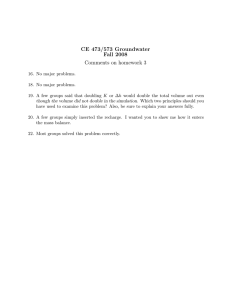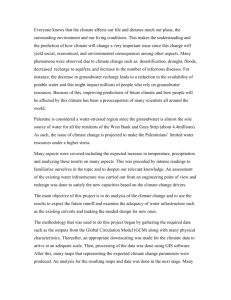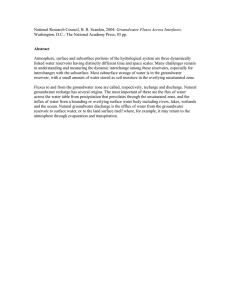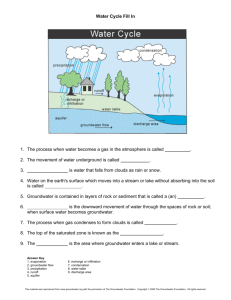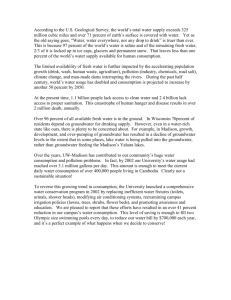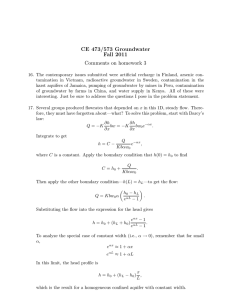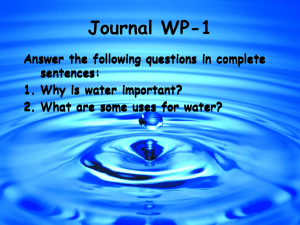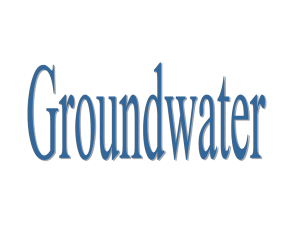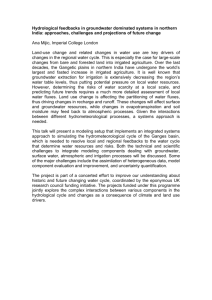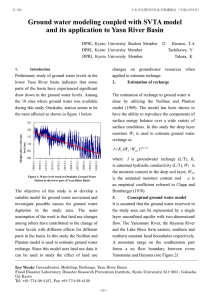Summary * Key messages - Proposed Project Summary
advertisement
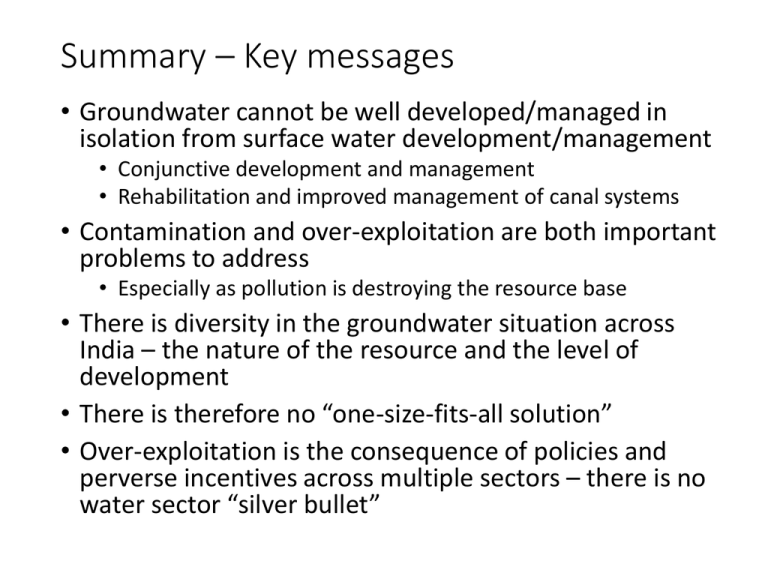
Summary – Key messages • Groundwater cannot be well developed/managed in isolation from surface water development/management • Conjunctive development and management • Rehabilitation and improved management of canal systems • Contamination and over-exploitation are both important problems to address • Especially as pollution is destroying the resource base • There is diversity in the groundwater situation across India – the nature of the resource and the level of development • There is therefore no “one-size-fits-all solution” • Over-exploitation is the consequence of policies and perverse incentives across multiple sectors – there is no water sector “silver bullet” Summary – Key reform elements • “Hot-spot analysis” to: • identify and describe the nature of the key current and emerging groundwater problems across the India • identify recharge potential • Identify ecological values linked to groundwater • develop fit-for-purpose reforms at state and local level • prioritize funding assistance • Define GW management units based on aquifer mapping, current and potential use and quality • Consider a “program for results” approach with appropriate state-level targets to allocate funding • Prioritize securing safe drinking water supply • Scope options for metering GW use, targeting high priorities areas, and the institutions to support • Invest in recharge structures where appropriate Summary – Key reform elements • Invest in institutions • Bottom-up: community level participatory management (SW-GW) possibly supported by CSR contributions • Top-down: reorienting center and state GW agencies from solely technical to planning and implementing agencies • Capacity development in technical and policy areas • For priority GMUs identify portfolio of incentives and regulations to achieve sustainable levels of use • • • • reward staying within sustainable levels penalize excessive use Remove current perverse incentives / subsidies appropriately control additional development Summary – Next Steps • World Bank will prepare comprehensive summary of this meeting including all PPT and will share via NHP Website: www.indiawrm.org • This meeting will inform scoping by MoWR of a potential national GW program • National Hydrology Project will provide important contributions to improved GW data, technical capacity and strengthened institutions. • This meeting will inform ongoing discussions in MoWR on central institutional reforms to strengthen water planning and policy • Regional World Bank study on sustainable GW use being scoped
